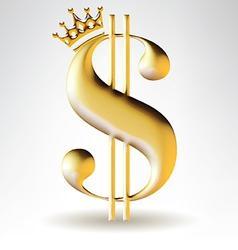
Why Cash Flow Is More Important Than Cash?
Cash is King! Or is it?
You probably have heard this term at some point and at first glance it seems to make sense. What I have come to realize after almost 14 years as a financial advisor is that Cash Flow is more important than Cash.
I have found that by understanding:
- What cash flow is
- Why it’s important
- And what your particular cash flow looks like
You will learn one of the most important financial concepts you can ever know, Cash Flow. Yes, it makes sense to know things about investing, insurance, taxes, etc. But cash flow makes doing pretty much anything you want to do in life or business possible.
Knowing your cash flow can mean the difference between financial freedom and financial ruin, which one do you want?
What Is Cash Flow?
In a nutshell, cash flow is the flow (amount) of money coming in and going out of your bank account. Think of it as a water tank: water comes in at the top and drains out the bottom. In order to keep your tank full, you want more coming in than going out. If only it were that easy though!
Here is a simple cash flow example:
- Monthly take-home pay of $5,000.00 – This is cash flow in
- Monthly expenses (mortgage, rent, car, food, etc.) $4,000.00 – This is cash flow out.
- Net monthly cash flow is $500.00 – This is positive (net) cash flow – Which is what you want!!
Now, this example is oversimplified to illustrate the basics of cash flow. It’s important to understand that it can and does get more complicated depending on your income sources, expenses, and so forth, but ultimately you still end up with more, or less, cash in your bank account each month.
Cash Flow Inflow
Cash inflow is what you use to pay for everything you, your family, or your business needs each month. It comes from sources like your paycheck, payments from customers, investment or rental income, interest on savings, or things like pensions and income annuities.
Positive cash flow is very important for several reasons, but I would argue the most important reason is that it allows you to take your positive cash flow each month and reinvest it back into the sources of income that are generating them, or even diversify and invest it in alternate sources of income.
On the flip side, there’s negative cash flow – such as more money flowing out than money coming in.
Cash Flow Outflow
Cash outflow is normal unless you have absolutely no expenses. Is that even possible?! For most of us, no.
Cash outflow is a result of your ongoing normal and one-off expenses (expected and unexpected). We need to pay for things to live the lifestyle we have chosen and/or to run our business. The key is knowing the difference between your cash flow in and cash flow out. If you don’t the results can be financially catastrophic!
It is my opinion that so many Americans are in debt because they don’t understand the basics of cash flow planning. They have a “gut feeling” that they have enough cash but in reality, many people have very little idea of their actual cash flow. Going with your gut has no place when it comes to personal financial planning.
I have worked with over 1000 people in my 14 years and although I don’t have an exact figure, I would be willing to bet that only 1 in 9 truly have a good handle on their cash flow when we start working together.
It is a scary number, but can you blame people? Money as a subject is not formally taught to us, so how are we supposed to know about Cash Flow Management when we were never told about it in the first place!?
That is why I am here, to educate you on the subject so you may have a better handle on your cash flow.
Get Organized and Plan Your Cash Flow
Failing to plan is planning to fail.
Positive cash flow is driven by two things: organization and planning. It’s as simple as that!
Start with a pen and paper and just write down all your monthly income and expenses. Add it up and see if you have more coming in or more going out. It is a quick and dirty exercise to establish a baseline of where your cash flow currently is. It’s an honest, reflective process but well worth it.
Now it’s time to take this cash flow bull by the horns!
Be honest with yourself, is your cash flow worse than you thought it was? You must be open and honest with yourself, and your spouse if you have shared finances, in order to make some positive adjustments.
Do you really need that $5 latte on the way to work every morning? Do you really need 5 different streaming video services? Although these things bring us little joy each day, they end up bringing us down in the long run.
Do you ever feel like you are in a hamster wheel? Why can you never seem to get ahead? This likely is because you don’t have a solid grasp on the money you are spending.
So, what is the solution?
To assess your monthly expenses. Sure, this can be a bit difficult because it’s easy to overlook things only to end up with a surprise you didn’t anticipate. But all it takes is a little bit of time logging into your bank accounts and credit cards to see what your monthly expenses are.
Here are some of the basics to look for:
- Rent or mortgage
- Car payment
- Insurance (life, disability, car, home, liability, etc.)
- Streaming services
- Travel
- Utilities
- Taxes – if you are a w2 employee this is easy to figure out, but still important to know
- Personal loan payments
- Groceries
- Haircuts, spa, etc.
- Going out for dinner and drinks etc.
Remember to be honest and objective when looking at your cash flow expenditures. I have found a lot of people initially put off doing this exercise since they are worried about what they might find. The funny thing is that, even if they have negative cash flow, once they know the real numbers, they can now do something about it!
Taking this cash flow bull by the horns and showing it who is boss will give you a feeling of relief. All it takes is action once you know your cash flow situation, you can make changes today, right now, that will help you feel better about what your near- and long-term financial future looks like. Refrain from panic, rather focus on the adjustments.
So, why is Cash Flow more important than Cash?
Yes, cash in the bank, or even under your mattress, is important and has its place. But it’s been my experience that the cash flow produced from your investments (401k, 403b, IRA, Roth IRA, Investment Account, etc.) is more important because the cash flow produced is what we use.
I manage money in various account types for my clients and very rarely do they call and say, “Derek, you rock but I need to close my account and buy XYZ with it.” Although this does happen on occasion most people want to know how much income (cash flow inflow) their accounts will produce so they know what kind of income they can expect to receive regularly.
Don’t get me wrong, cash (in various forms) is still important, but what I have seen is that people are more concerned about what that cash is doing for them, or could do, from an income perspective. Because at the end of the day, people need the cash flow income to pay for their lifestyle, simple as that.
Having said this, let's look at some easy ways to save money in a world where it is becoming more and more tempting to opt for the bells and whistles as opposed to saving and building wealth for your future.
7 easy ways to save money
- Figure out how much you spend
Out of my many years of working with clients from all walks of life, the first step to saving money is to figure out how much you spend.
As mentioned above, you need to keep a close eye on your expenses. This means absolutely everything – from tips at restaurants to family vacations. Once you have accumulated this data, arrange them into categories, such as rent/mortgage, entertainment, transport, etc.
- Set a budget
When you know what you’re spending every month, you can begin to arrange these recorded expenses into a practical budget. This needs to outline how your expenses (Cash flow outflow) measure up to your income (Cash flow inflow). The purpose of this is to plan your spending and limit any unneeded overspending.
For this to be entirely accurate, you need to ensure that you factor in regular expenses that might not occur every month, such as a car service or a haircut.
- Save
Once you have established a realistic budget, try to create a savings column within it. If you can, and of course this may vary, but try to save 10 to 15 % of your income every year.
If you can’t afford to save due to your expenses, then it is probably time to start cutting some of them out (that daily latte I mentioned earlier). This can be achieved by identifying non-essentials that you can limit to special occasions, such as entertainment and dining out. This is one of the easy ways to save money that is quite simple to achieve.
- Set goals
Another easy way to save money is by setting realistic goals. What is it that you need to save for? Retirement? Getting married? A vacation? Whatever your reason, you will need to figure out exactly how much money you will need.
Then, you need to determine how long it will take to save it. When it comes to major financial plans like saving for your child’s tuition or saving for retirement, some account types are better suited since they are built for things like college, retirement, etc.
Although investing usually comes with risk, compounding enables you to save more quickly over longer periods. Think of it as a snowball that you keep rolling, it gets bigger and bigger, faster and faster.
- Prioritize your goals
Once you have set these goals, you will need to prioritize them. This will, in turn, influence how you allocate your savings. Keep long-term goals in mind as you mustn’t allow short-term savings to affect your more ambitious targets.
- Setup automated transfers
Another easy way to save money is by setting up automated transfers with your bank. This means you can select when, how much, and where to transfer money or set it up in such a way that a portion of every paycheck goes straight into your savings account. It’s an effective way to save because you don’t have to think about it, reducing the temptation to spend it.
- Review your budget
It’s important to always have one eye on your budget. Review it and check your progress monthly. This will allow you to not only stick to the plan but also help you identify and fix any overspending speedily.
Apply these 7 easy ways to save money and you will notice the difference within a month, I guarantee you this. Be strict on yourself, it’s worth it in the long run.
Cash Flow Management
One of the things I help my clients with is to do a deep dive into their cash flow to help them figure out:
- What it is
- What changes they may want to make
- How to leverage their positive cash flow to do more of the things they want in life
The process is simply liberating!
In summary, being on top of your cash flow allows you to see the big picture and set long and short-term life goals which is an integral part of mapping out your financial future.
Combining this with a financial plan will help you make financial decisions more easily while staying on track to meet your life goals.
How to tell if you need personal financial planning assistance?
- You want to have more control over your finances but aren't sure where to begin
- Don’t have the time to do it yourself
- You need professional advice on a financial plan you created for yourself
- You lack expertise when it comes to taxes, investments, insurance, or retirement planning
Utilising a personal finance company
Using a personal financial advisor like myself is incredibly beneficial. I simply help people manage their finances. My team and I are here to provide advice on a range of issues such as investments, estate planning, taxes, retirement, insurance, mortgages, and college savings depending on your needs.
We help people like you with the following:
- Financial planning
- Investment management
- Insurance solutions
- Portfolio & Retirement income planning
While implementing all of this, we carefully consider your life goals, wealth transfer plans, and projected expense levels. This is achieved by truly taking the time to incorporate unique aspects of your financial journey, including investing, budgeting, and continually educating you on any relevant financial topics. Each case is unique, and we pride ourselves on a tailored plan just for you.
As I’ve mentioned before, an in-depth financial plan will ensure a smooth transition through life's financial phases, such as decreasing spending or changing asset allocation.
At IWP, I even use a cool cash flow tool as part of the eMoney dashboard I provide my clients. It looks at cash flow based on the connected data and can be set up to benchmark against a monthly budget. This way you can see at any time what you are spending and if you are on track based upon the budget we set up.
If you are looking to figure out or improve your cash flow, then I encourage you to get in touch with a financial professional to have an initial conversation. Putting a financial plan in place to address and solve your varied problems can ensure peace of mind and financial security.
Thank you for reading!
Cheers,
Derek Notman


